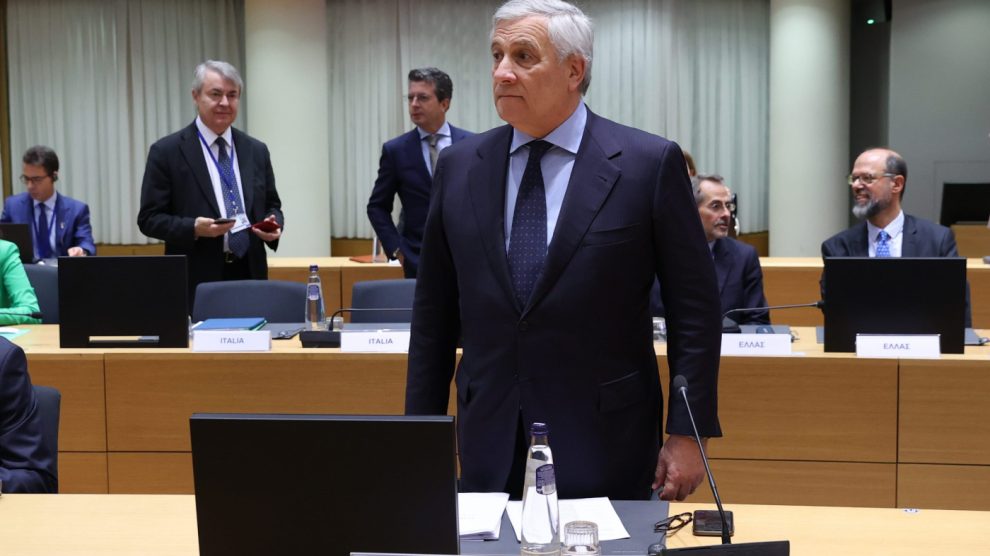It’s time for sanctions on Hamas. On Monday, the foreign ministers of France, Germany and Italy jointly called on the European Union to impose sanctions on the jihadist group that controls the Gaza Strip, as well as its supporters, through a letter to Josep Borrell, the EU’s High Representative for Foreign Affairs.
- In it, the trio – Catherine Colonna, Annalena Baerbock and Antonio Tajani – expressed their “full support” for the creation of “an ad hoc sanctions regime.”
- A swift adoption would enable the bloc “to send a strong political message about the [EU]’s commitment against Hamas and our solidarity with Israel.”
Several reasons why. Recalling that the European Council had condemned Hamas “in the strongest possible terms” for its heinous and indiscriminate terrorist attacks against Israel on October 7, the Italian, French and Germany FMs remarked the importance of taking all necessary measures against Hamas and its supporters “through concrete actions, in order to prevent the recurrence of such acts.
- The called for stronger action against the group’s infrastructure and financial support and argued that it’s necessary to isolate and delegitimise Hamas internationally – highlighting that the jihadist outfit “in no way” represents the Palestinians or their legitimate aspirations.
- When asked about Belgium’s call to ban Israeli settlers from entering the EU’s Schengen area, Italian FM Tajani replied that they cannot be equated with Hamas. “I condemn the violence and intemperance of the Israeli settlers but they are not a terrorist organisation,” he said, noting he deplores the use violence against the Palestinian population while stressing that they are “two very different things.”
A growing entente… The EU’s three biggest economies have been cooperating closely on a number of key sectors – including critical raw materials, artificial intelligence and space – amid a wider EU push to coordinate better responses to external shocks. On a more formal level, Italy and Germany have recently signed an all-encompassing cooperation deal called Action Plan – closing the triangle with France, itself bound to both countries through parallel deals (the Franco-Italian Quirinal Treaty and Franco-German Aachen Treaty).
- Besides marking Rome’s renovated push to affect change within and outside the EU, these dealings also highlight the three capital’s awareness that closer cooperation is more effective to advance their, and Europe’s, interests.
… and growing-up pains. Still, the convergence is far from complete, as demonstrated by the ongoing negotiations at the EU level to reshape the bloc’s fiscal rules. While France and Italy advocate for more flexibility and keeping strategic expenses (green, digital and defence) out of the public spending calculus, Germany is maintaining its historical stance – fiscally rigorous and in favour of inflexible rules – even despite its own ongoing budget crisis.





